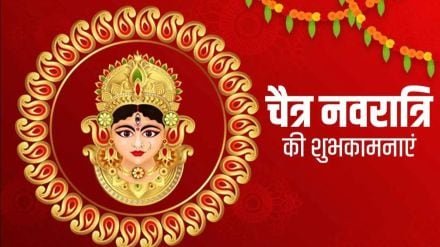Navratri, a vibrant and culturally rich festival celebrated by millions worldwide, is a time of immense joy, devotion, and cultural festivities. This nine-night festival honors the divine feminine energy and is marked by dance, music, fasting, and vibrant celebrations. Whether you’re a seasoned participant or new to Navratri, here’s a guide to help you make the most of this auspicious occasion.
Understanding Navratri
1. Significance: Navratri translates to “nine nights” and is dedicated to Goddess Durga and her various forms. Each day symbolizes a different manifestation of the Goddess, representing distinct qualities like strength, courage, wisdom, and prosperity.
2. Spiritual Observance: Many devotees observe fasting during Navratri, abstaining from certain foods and practicing self-discipline. This is believed to purify the mind, body, and soul, fostering a deeper connection with the divine.
Festive Activities and Traditions
1. Garba and Dandiya Raas: These energetic and rhythmic folk dances are integral to Navratri celebrations. Gather with friends and family to participate in these dances, adorned in colorful traditional attire, and revel in the lively beats of the music.
2. Golu Display: In South India, the tradition of Golu involves creating elaborate displays of dolls and figurines depicting gods, goddesses, and mythological scenes. Visiting homes with Golu displays is a delightful way to experience the cultural richness of Navratri.
3. Puja and Aarti: Attend or organize special prayers, pujas, and aartis dedicated to Goddess Durga. These rituals are performed with great devotion, accompanied by chants, incense, and offerings of flowers and sweets.
4. Cultural Performances: Navratri showcases a myriad of cultural performances including classical music concerts, traditional dance recitals, and theatrical performances. Attend these events to immerse yourself in the artistic fervor of the festival.
Nourishing the Body and Soul
1. Fasting Guidelines: If you choose to fast during Navratri, follow traditional guidelines that include consuming sattvic (pure) foods such as fruits, nuts, dairy products, and specific grains like amaranth and buckwheat. Stay hydrated and consult with a healthcare professional if needed.
2. Community Feasting: At the culmination of Navratri, partake in community feasts known as ‘Kanya Pujan’ or ‘Kanjak’ where young girls, considered embodiments of the divine feminine, are worshipped and offered special meals.
Spreading Joy and Generosity
1. Charitable Initiatives: Embrace the spirit of giving by supporting charitable organizations and initiatives that benefit the less fortunate. Donate food, clothing, or contribute to educational programs during Navratri to spread joy and positivity.
Avoid These Navratri Practices: What Not to Do During this Sacred Festival
2. Social Gatherings: Connect with friends, neighbors, and colleagues to celebrate Navratri together. Organize potluck dinners, cultural exchanges, or simply share stories and experiences related to the festival.
Personal Reflection and Renewal
1. Inner Cleansing: Use Navratri as a time for introspection, self-improvement, and spiritual growth. Reflect on your goals, aspirations, and areas of personal development, seeking inner strength and clarity.
2. Gratitude Practices: Cultivate an attitude of gratitude by acknowledging blessings and expressing thanks to loved ones, mentors, and the divine. Practice mindfulness, meditation, or yoga to enhance your sense of well-being.
Navratri is not just a festival; it’s a vibrant tapestry of traditions, spirituality, and cultural heritage. By participating in its various rituals, celebrations, and acts of kindness, you can unlock the true essence of Navratri and experience profound joy, connection, and renewal.









